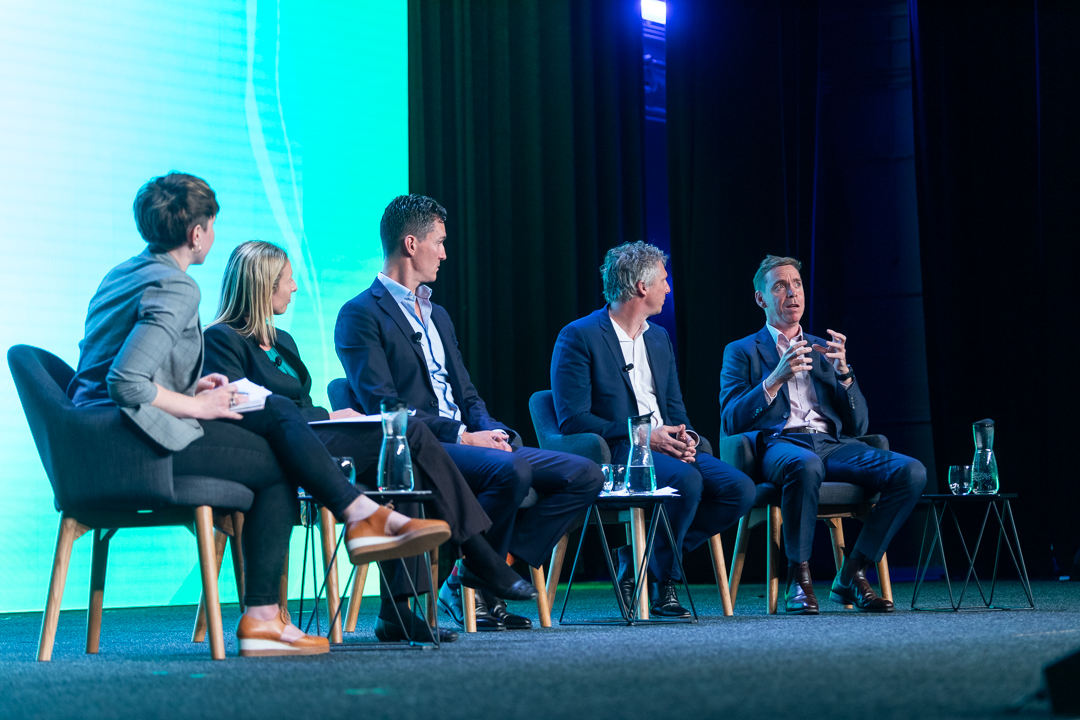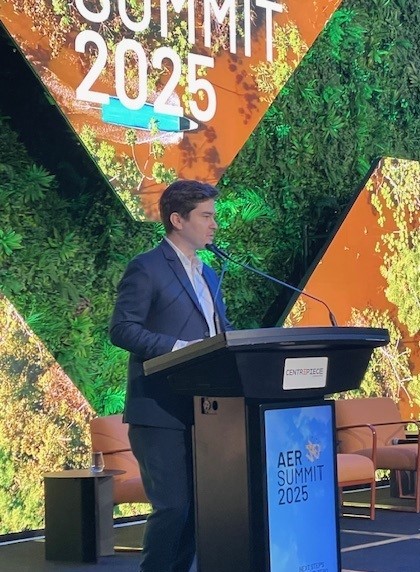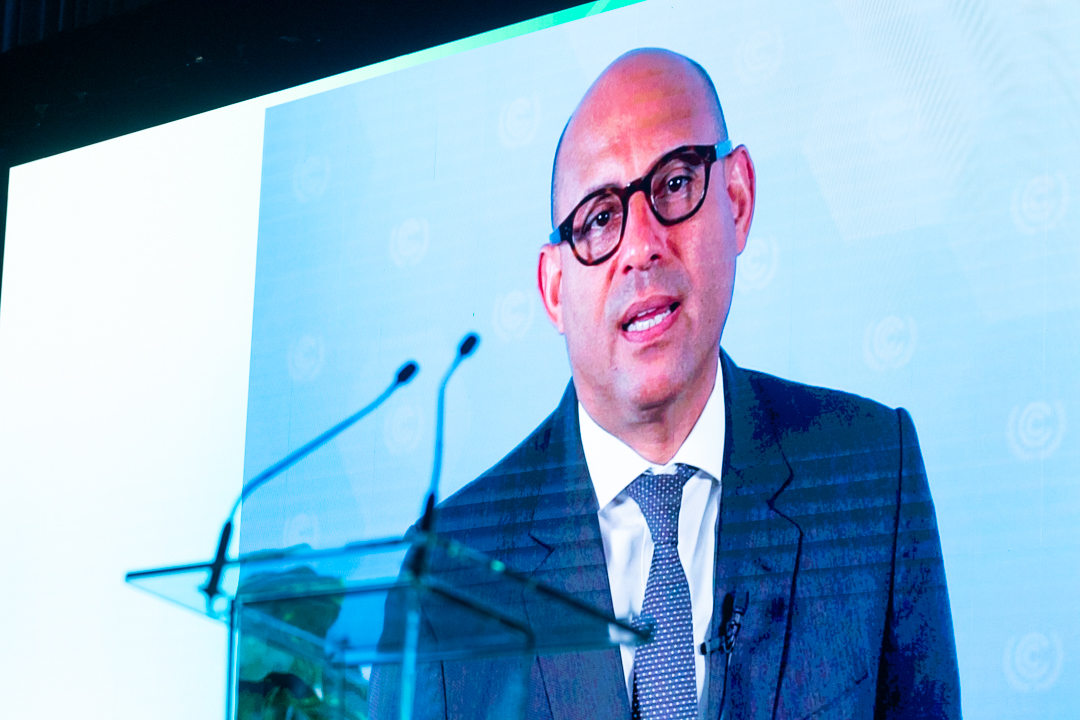Summit highlights need to deepen and broaden carbon policies, plans and investment
The Carbon Market Institute’s (CMI) Australasian Emissions Reduction Summit concluded on Friday, with a renewed sense of urgency for accelerating public and private investment, as well as embracing the opportunities in a fast, fair and sustainable transition.
The event, now in its 10th year, was attended by over 1000 delegates in-person and online, and brought together national and state politicians and officials, international climate policy experts, carbon farming project developers, and representatives of heavy industry, investors and environment groups.
“It’s been a tumultuous yet transformative last 10 years, and the next decade promises to be even more intense, but hopefully less of a rollercoaster and much more productive,” said CMI CEO John Connor.
“As the Summit repeatedly heard, Australia and its neighbours in the Asia Pacific region face significant and escalating climate and biodiversity challenges, costs and opportunities.”
“Minimising the costs and maximising the opportunities will require strengthened institutions, policies, collaboration and standards in order to target and turbo-boost public and private investment.”
“We must be more focused, more collaborative, and bolder. We need rapid, well-coordinated, transformational change that engages all stakeholders and provides a clear voice for Indigenous representatives,” he said.
Key speaker quotes:
Co-chair of the Voluntary Carbon Markets Integrity Initiative, Rachel Kyte:
“The world is on fire, and we have only a few years to fix the economic plumbing – the financial system – to preserve a fairer and free world for our species and this planet.”
Deputy Director-General, World Trade Organisation, Jean-Marie Paugam:
“We are now growing in terms of engagement and commitment in our relationship with the UNFCCC. [In the past we have been] a little bit like timid lovers who did not dare look at each other for a long time or were observers from a distance… For the first time, for instance, the United Arab Emirate Presidency of the next COP has decided to organise a trade day, which is the first one of its kind, and the WTO will substantially contribute to it.”
UNFCCC Executive Secretary Simon Stiell on COP28:
“Noting the poor progress recently highlighted in the just released Global Stocktake report, [COP28] will be a critical opportunity to course-correct and build climate stability and resilience”.
UK Transition Plan Taskforce Team Leader, Jacques Morris:
“Worldwide, we are seeing a pivot to regulation where an increasing number of jurisdictions are bringing in transition plan requirements.”
Minter Ellison Partner Sarah Barker on responding to climate and sustainability issues:
“Companies often ask lawyers ‘what are my obligations’ on climate change and environmental matters, with the aim of having a handy checklist of what they need to do.”
“[But climate impact] is not a compliance issue. It’s a risk issue.”
Grattan Institute Deputy Program Director, Alison Reeve:
“We need to go faster… We are just going to have to get it done, and it’s going to be quite messy, and it is probably going to be expensive… we have missed the boat in terms of being able to talk about doing this at least cost.”
Investor Group on Climate Change Policy Director, Erwin Jackson, on company climate transition plans:
“The area that investors are particularly focused on how climate pledges are affecting a company’s capital allocation. You’ve got to back your words with money.”
Notes for editors
The Summit Media Kit is available here, and all press releases on key sessions can be viewed below:
Heavy industry must take a big picture view on decarbonisation, experts warn
CMI welcomes carbon credibility enhancements and Kyoto carbon credits cancellation
WTO strengthening focus on climate change, working closer with UN
New guidance on climate transition plans likely to go global
Looming global talks must deliver ‘a course correction’, warns UN climate chief
Net-zero pivot must be on same scale as post-war reconstruction, Combet says
Access CEO John Connor’s opening remarks here.
About the 10th Annual Australasian Emissions Reduction Summit
The Carbon Market Institute’s annual Emissions Reduction Summit is one of the largest and longest-running business and climate action events in the region and took place in Sydney across September 14 & 15.
In the midst of a transformational 12 months for the global economy as it continues to navigate the escalating challenges, scrutiny and real-life impacts of climate change, this year’s Summit will provide a timely pulse-check on business progress, as well as government ambition and international action as leaders prepare for COP28 later this year.
About the Carbon Market Institute
The Carbon Market Institute (CMI) is a member-based institute accelerating the transition towards a negative emissions, nature positive world. It champions best practice in carbon markets and climate policy, and its over 150 members include primary producers, carbon project developers, Indigenous organisations, legal, technology and advisory services, insurers, banks, investors, corporate entities and emission intensive industries. The positions put forward constitute CMI’s independent view and do not purport to represent any CMI individual, member company, or industry sector.



